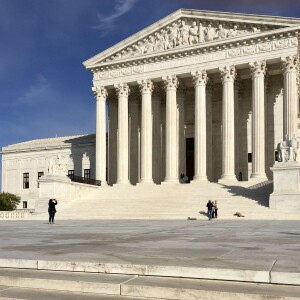
Coinbase v. Suski
The dispute here involves a conflict between two contracts executed by petitioner Coinbase, Inc., operator of a cryptocurrency exchange platform, and respondents, who use Coinbase. The first contract—the Coinbase User Agreement that respondents agreed to when they created their accounts—contains an arbitration provision with a delegation clause. Per this provision, an arbitrator must decide all disputes under the contract, including whether a given disagreement is arbitrable. The second contract—the Official Rules for a promotional sweepstakes respondents entered—contains a forum selection clause providing that California courts “shall have sole jurisdiction of any controversies regarding the [sweepstakes] promotion.” Respondents ultimately filed a class action in the U. S. District Court for the Northern District of California, alleging that the sweepstakes violated various California laws. Coinbase moved to compel arbitration based on the User Agreement’s delegation clause. The District Court determined that the Official Rules’ forum selection clause controlled the parties’ dispute and accordingly denied the motion. The Ninth Circuit affirmed. Held: Where parties have agreed to two contracts—one sending arbitrability disputes to arbitration, and the other either explicitly or implicitly sending arbitrability disputes to the courts—a court must decide which contract governs.
More Episodes
 2018-02-21
2018-02-21
 2018-02-21
2018-02-21
 2018-02-20
2018-02-20
 2018-02-20
2018-02-20
 2018-02-18
2018-02-18
 2018-02-17
2018-02-17
 2018-02-11
2018-02-11
 2018-02-09
2018-02-09
 2018-02-09
2018-02-09
 2018-02-09
2018-02-09
Create your
podcast in
minutes
- Full-featured podcast site
- Unlimited storage and bandwidth
- Comprehensive podcast stats
- Distribute to Apple Podcasts, Spotify, and more
- Make money with your podcast
It is Free
- Privacy Policy
- Cookie Policy
- Terms of Use
- Consent Preferences
- Copyright © 2015-2024 Podbean.com





